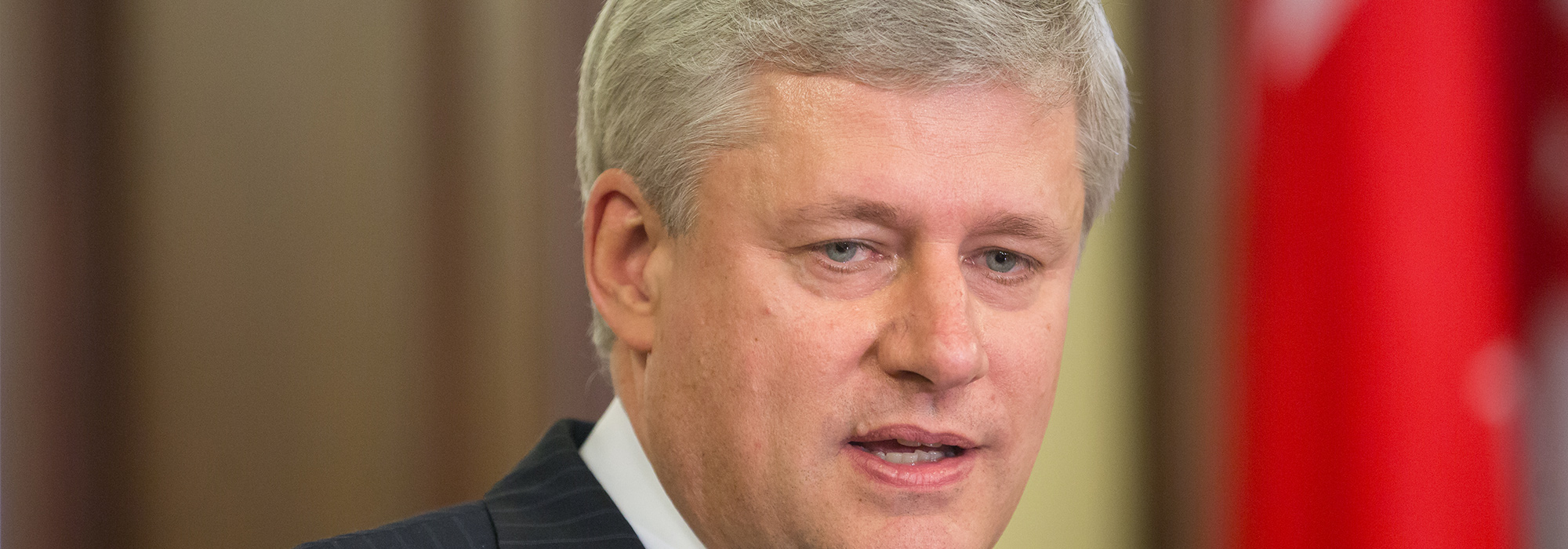
I will use my time today to highlight Canada’s economic strengths and to frame the choices we face as we work to secure long-term prosperity for our citizens in a difficult global environment, one that is likely to remain so.
As you know, Canada has economically outperformed most industrialized countries during these recent difficult years for the global economy. Forbes magazine ranks Canada as the best place on the planet for businesses to grow and create jobs. The OECD (Organisation for Economic Co-operation and Development) and the IMF (International Monetary Fund) predict our economy will again be among the leaders of the industrialized world over the next two years.
And one more cherished accolade, of course, is that for the fourth year in a row, this body, the World Economic Forum, says our banks are the soundest in the world.
These evaluations are the result of sound fundamentals. Among G7 countries, Canada has the lowest overall tax rate on new business investment. Our net debt-to-GDP ratio remains the lowest in the G7 — and by far.
And while we remain concerned about the number of Canadians who are still out of work, Canada is one of only two G7 countries to have recouped all of the jobs lost during the global recession.
Indeed, more Canadians are now working than before the downturn. How was this achieved?
Faced with the worst global economic crisis since the 1930s, our government implemented some of the most extensive and targeted economic stimulus measures of the G20.
We made historic investments in infrastructure. We encouraged businesses to invest and helped them to avoid layoffs. We put substantial funding into skills training, and we extended support for workers who lost their jobs.
These things we did on a timely, targeted and temporary basis. We did not create permanent new programs or government bureaucracy. As a consequence, our deficit is now falling, our debt-to-GDP ratio has already peaked and we do not need to raise taxes. I should add that we also did not reduce immigration or give in to protectionism.
Instead, we have maintained the high levels of immigration that our aging labour force of the future will require. We have continued to pursue new trade agreements.
And we have taken action to make Canada, among G20 countries, the first tariff-free zone for manufacturers. We have pursued these policies, ladies and gentlemen, because our number one priority as a government is prosperity, that is, economic growth and job creation.
Now that may sound obvious, almost clichéd. But is it really? As I look around the world, as I look particularly at developed countries, I ask whether the creation of economic growth, and therefore jobs, really is the number-one policy priority everywhere.
Or is it the case that in the developed world too many of us have, in fact, become complacent about our prosperity, taking our wealth as a given, assuming it is somehow the natural order of things, leaving us instead to focus primarily on our services and entitlements?
Is it a coincidence that as the veil falls on the financial crisis, it reveals not just too much bank debt, but too much sovereign debt, too much general willingness to have standards and benefits beyond our ability or even willingness to pay for them?
I don’t know. But what I do know is this. First, that the wealth of Western economies is no more inevitable than is the poverty of emerging ones, and that the wealth we enjoy today has been based on — and only on — the good, growth-oriented policies; the right, often tough choices; and the hard work done in the past.
Is it the case that in the developed world too many of us have, in fact, become complacent about our prosperity, taking our wealth as a given, assuming it is somehow the natural order of things, leaving us instead to focus primarily on our services and entitlements?
And second, that regardless of what direction other Western nations may choose, under our government, Canada will make the transformations necessary to sustain economic growth, job creation and prosperity, now and for the next generation.
That further means two things: making better economic choices now and preparing ourselves now for the demographic pressures the Canadian economy faces.
On what we must do now, first, we will, of course, continue to keep tax rates down. That is central to our government’s economic vision. But we will do more, much more. In the months to come our government will undertake major transformations to position Canada for growth over the next generation.
For example, we will continue to make the key investments in science and technology necessary to sustain a modern competitive economy. But we believe that Canada’s less than optimal results for those investments is a significant problem for our country.
We have recently received a report — the Jenkins Report — on this, and we will soon act on the problems the report identifies.
We will continue to advance our trade linkages. We will pass agreements signed, particularly in our own hemisphere, and we will work to conclude major deals beyond it.
We expect to complete negotiations on a Canada-EU free trade agreement this year. We will work to complete negotiations on a free trade agreement with India in 2013. And we will begin entry talks with the Trans-Pacific
Partnership, while also pursuing other avenues to advance our trade with Asia. Of course, I will again be making an official visit to China very shortly.
We will also continue working with the Obama administration to implement our joint Beyond the Border initiative — our plan to strengthen and deepen our economic and security links with our most important partner.
However, at the same time, we will make it a national priority to ensure we have the capacity to export our energy products beyond the United States, and specifically to Asia. In this regard, we will soon take action to ensure that major energy and mining projects are not subject to unnecessary regulatory delays — that is, delay merely for the sake of delay.
This complements work we are already doing and that we will move forward on with the Canadian Federation of Independent Business to cut the burden of red tape on entrepreneurs.
We will also undertake significant reform of our immigration system. We will ensure that, while we respect our humanitarian obligations and family reunification objectives, we will make our economic and labour force needs the central goal of our immigration efforts in the future.
The wealth of Western economies is no more inevitable than is the poverty of emerging ones, and that the wealth we enjoy today has been based on — and only on — the good, growth-oriented policies; the right, often tough choices; and the hard work done in the past.
As I said earlier, one of the backdrops for my concerns is Canada’s aging population. If not addressed promptly, this issue has the capacity to undermine Canada’s economic position and, for that matter, the positions of all Western nations, well beyond the current economic crises.
Immigration does help us address the issue of the aging population and will even more so in the future. Our demographics also constitute a threat to the social programs and services that Canadians cherish. For this reason, we will be taking measures in the coming months just to not return to a balanced budget in the medium term, but also to ensure the sustainability of our social programs and fiscal position over the next generation.
We have already taken steps to limit the growth of our health care spending over that period. We must do the same for our retirement income system. Fortunately, the centrepiece of that system, the Canada Pension Plan, is fully funded, actuarially sound and does not need to be changed. For those elements of the system that are not funded, we will make the changes necessary to ensure sustainability for the next generation, while not affecting current recipients.
Let me summarize by saying, ladies and gentlemen, that, notwithstanding Canada’s many advantages, we remain very concerned about the continuing instability of the global economy, of which we are a part. The problems afflicting Europe, and for that matter the United States, are not only challenging today but, in my judgment, threaten to be even greater problems in the future.
Having said that, each nation has a choice to make. Western nations, in particular, face the choice of whether to create the conditions for growth and prosperity or to risk long-term economic decline. In every decision, or failure to decide, we are choosing our future right now.
And as we all know, both from the global crises of the past few years and from past experience in our own countries, easy choices now mean fewer choices later.
Canada’s choice will be, with clarity and urgency, to seize and to master our future, to be a model of confidence, growth and prosperity in the 21st century.
Photo: Drop of Light / Shutterstock
Excerpted from a speech to the World Economic Forum at Davos, Switzerland, on January 26, 2012.








